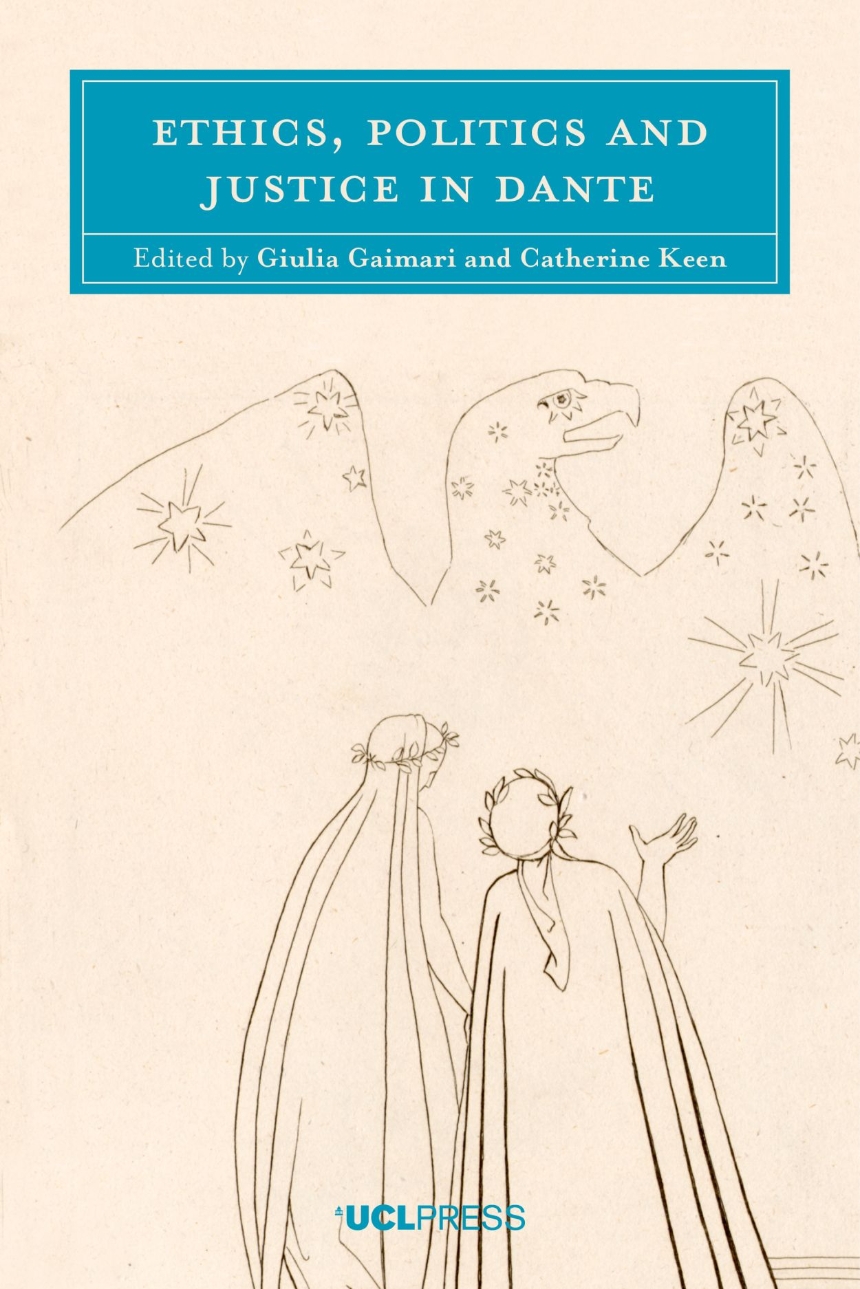Distributed for UCL Press
Ethics, Politics and Justice in Dante
While Dante Alighieri’s writings engaged with the culture of medieval Florence and Italy, his moral and political thought still speaks compellingly to modern readers today.
Bringing together an international and interdisciplinary group of contributors, ranging across history, philology, classical studies, philosophy, and theology, Ethics, Politics and Justice in Dante presents new research on ethics, politics, and justice in the works of Dante Alighieri, including chapters on Dante’s conception of the afterlife. Contributors scrutinize the Divine Comedy and Dante’s other works in Italian and Latin, showing the evolution of his thought throughout his writing career, with chapters focusing especially on his early philosophical Convivio and on the two “Eclogues” of his final years. Other chapters tackle themes relating to judgment, justice, rhetoric, and literary ethics in the Divine Comedy, as well as the differing public reception and use of Dante’s work in Italy and Britain.
Bringing together an international and interdisciplinary group of contributors, ranging across history, philology, classical studies, philosophy, and theology, Ethics, Politics and Justice in Dante presents new research on ethics, politics, and justice in the works of Dante Alighieri, including chapters on Dante’s conception of the afterlife. Contributors scrutinize the Divine Comedy and Dante’s other works in Italian and Latin, showing the evolution of his thought throughout his writing career, with chapters focusing especially on his early philosophical Convivio and on the two “Eclogues” of his final years. Other chapters tackle themes relating to judgment, justice, rhetoric, and literary ethics in the Divine Comedy, as well as the differing public reception and use of Dante’s work in Italy and Britain.
192 pages | 4 halftones | 6.14 x 9.21 | © 2019
Free digital open access editions are available to download from UCL Press.
Literature and Literary Criticism: General Criticism and Critical Theory
Table of Contents
1. Introduction: ‘Justice in the Heart’
Giulia Gaimari and Catherine Keen
2. On Grammar and Justice: Notes onConvivio, II. xii. 1–7
Anna Pegoretti
3. A Classicizing Friar in Dante’s Florence. Servasanto da Faenza, Dante, and the Ethics of Friendship
Nicolò Maldina
4. An Ethical and Political Bestiary in the First Canto of Dante’sComedy
Giuseppe Ledda
5. Lust and the Law: Reading and Witnessing inInfernoV
Nicolò Crisafi and Elena Lombardi
6. More than an Eye for an Eye: Dante’s Sovereign Justice
Justin Steinberg
7. ‘Ritornerò profeta’: TheEpistleof St James and the Crowning of Dante’s Patience
Filippo Gianferrari
8. Ethical Distance and Political Resonance in Dante’sEclogues
Sabrina Ferrara
Two Reflections on Dante’s Political and Ethical Afterlives
9. Dante’sFortuna: an Overview of Canon Formation and National Contexts
Catherine Keen
10. Responses to Dante in the New Millennium
Claire E. Honess and Matthew Treherne
Giulia Gaimari and Catherine Keen
2. On Grammar and Justice: Notes onConvivio, II. xii. 1–7
Anna Pegoretti
3. A Classicizing Friar in Dante’s Florence. Servasanto da Faenza, Dante, and the Ethics of Friendship
Nicolò Maldina
4. An Ethical and Political Bestiary in the First Canto of Dante’sComedy
Giuseppe Ledda
5. Lust and the Law: Reading and Witnessing inInfernoV
Nicolò Crisafi and Elena Lombardi
6. More than an Eye for an Eye: Dante’s Sovereign Justice
Justin Steinberg
7. ‘Ritornerò profeta’: TheEpistleof St James and the Crowning of Dante’s Patience
Filippo Gianferrari
8. Ethical Distance and Political Resonance in Dante’sEclogues
Sabrina Ferrara
Two Reflections on Dante’s Political and Ethical Afterlives
9. Dante’sFortuna: an Overview of Canon Formation and National Contexts
Catherine Keen
10. Responses to Dante in the New Millennium
Claire E. Honess and Matthew Treherne

